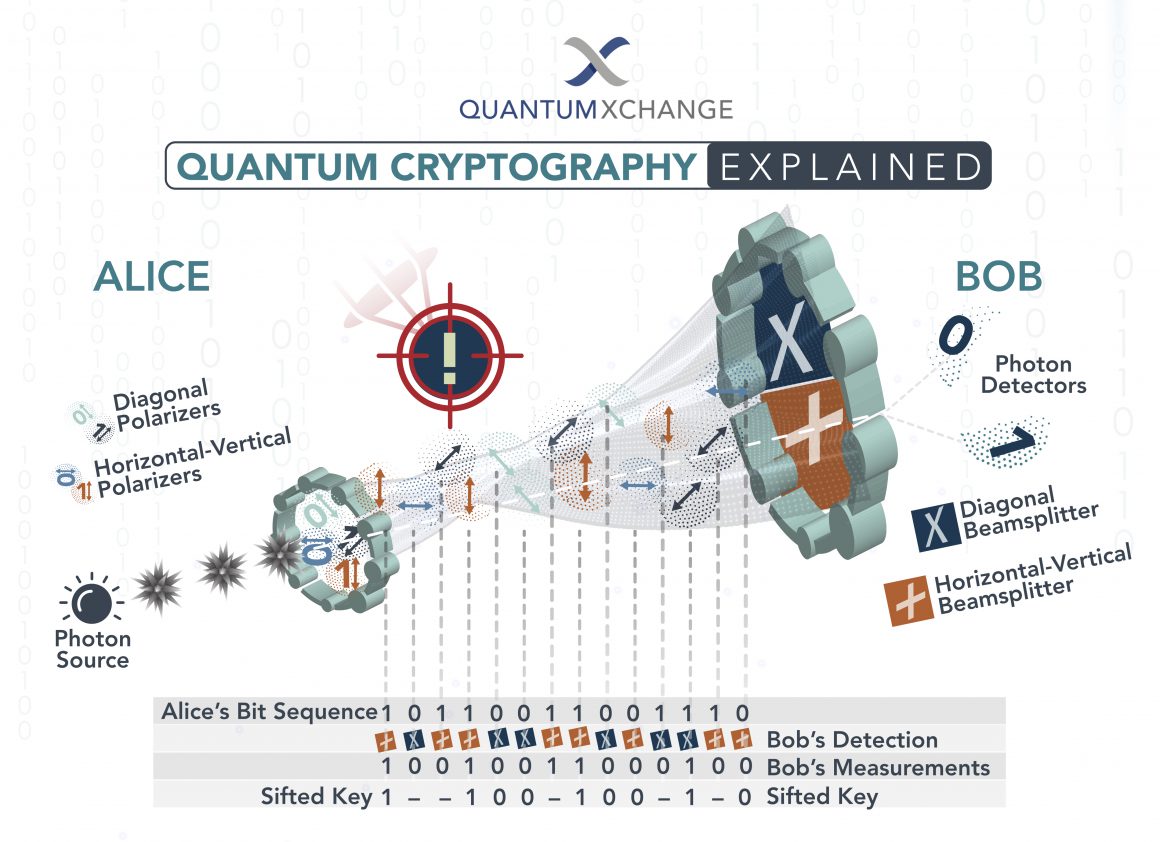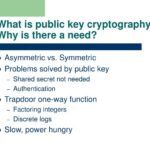In an era where digital security reigns paramount, the advent of quantum computing stands as a formidable challenger to traditional cryptographic protocols. Quantum computing leverages the principles of quantum mechanics to perform computations at unprecedented speeds and efficiencies, profoundly impacting the realm of cryptography. This introduces a multitude of challenges, as well as existential questions concerning the future of secure communication. The underlying fascination with quantum computing stems from its kaleidoscopic potential—an unfurling tapestry of possibilities that threatens the very foundations upon which modern cryptography is built.
At the heart of this discussion lies the fundamental distinction between classical and quantum computing. Classical computers utilize bits as their basic unit of information, which can exist in one of two states, zero or one. Quantum computers, however, employ quantum bits, or qubits, which can exist in multiple states simultaneously due to the properties of superposition. This capacity enables quantum machines to process vast amounts of data concurrently, thereby eclipsing classical computational limitations.
The implications of this leap are staggering, particularly in the context of public-key cryptography, which relies on the computational infeasibility of certain mathematical problems. For instance, the widely utilized RSA (Rivest–Shamir–Adleman) algorithm is predicated on the complexity of factoring large integers. While a classical computer may require an impractical amount of time to factor these numbers, a sufficiently advanced quantum computer could achieve this task in a fraction of the time by employing Shor’s algorithm. The realization that such an algorithm exists is unsettling; it suggests that once quantum computing capabilities advance, the cryptographic schemes that currently secure sensitive information—such as financial transactions, confidential communications, and personal data—might become obsolete.
A common observation is that many organizations have latched on to the notion of quantum-safe cryptography as a possible antidote to this looming crisis. However, this response only skirts the edges of the issue. The challenge of transitioning to quantum-resistant systems is not merely technical; it is inherently systemic. For one, the existing infrastructure of cryptographic systems is fortified with decades—if not centuries—of research, development, and investment. The interdependencies woven between different systems, including hardware security modules, digital certificates, and protocols often necessitate intricate retrofitting and a comprehensive overhaul, which is logistically daunting and resource-intensive.
Moreover, the timeline for quantum computing to render existing encryption methods vulnerable is still poorly defined. Predictions flood the discourse, yet underlying each forecast is a web of variables—including advancements in quantum hardware, software algorithms, and the ramifications of large-scale quantum systems. This uncertainty generates a dual-layered irony: while the threat feels abstract, the countdown to obsolescence is inexorably ticking. Organizations are increasingly caught in a labyrinth of decision-making—preparedness versus panic.
Another critical layer entwined in this analysis is the difference between information secrecy and information integrity. Quantum attacks, particularly against public-key systems, threaten not just confidentiality but the very essence of authentication. The integrity of data, which is oftentimes safeguarded through cryptographic signatures, may also be compromised. A situation could emerge wherein messages purportedly from trusted parties are forged with alarming ease. Hence, the ramifications expand beyond just the vulnerability of data to include the trust frameworks that underlie our digital interactions.
Additionally, the fascination with quantum computing is accentuated by philosophical inquiries regarding the nature of computational power itself. Delving into the realm of theoretical computer science, one confronts the paradox of P vs NP—a question that has stumped experts for decades. Quantum computing’s ability to navigate these complexities in a radically different manner invites deeper reflections on computational limits. Does the emergence of quantum machines signify a paradigm shift that redefines not just cryptography but our understanding of computational feasibility? As we probe these concepts, we must also entertain the ethical dimensions: who stands to benefit, and who could potentially be disadvantaged in this new landscape?
In preparation for the impending quantum era, organizations are urged to embrace a proactive stance. Engaging in research and collaboration to facilitate the development of post-quantum cryptographic algorithms is imperative. The National Institute of Standards and Technology (NIST) and various other institutions are embarking on initiatives to standardize quantum-resistant protocols, yet the adoption and implementation by the broader tech community will take time. The urgency for educational outreach cannot be overstated, as professionals across disciplines—cybersecurity, software engineering, and policy-making—must understand the implications of this quantum shift.
In conclusion, the advent of quantum computing is poised to break the stasis of current cryptographic methods, compelling us to reconsider the frameworks that have secured our digital lives for so long. The marvel of quantum mechanisms beckons curiosity and trepidation alike, encapsulating a contradiction that is at once exhilarating and menacing. As we stand on the cusp of a quantum revolution, we must collectively navigate this complex terrain, ensuring that the very constructs meant to safeguard our information remain resilient in face of an evolving digital landscape. The time for preparedness is now; the quantum future is approaching with certainty.








Leave a Comment